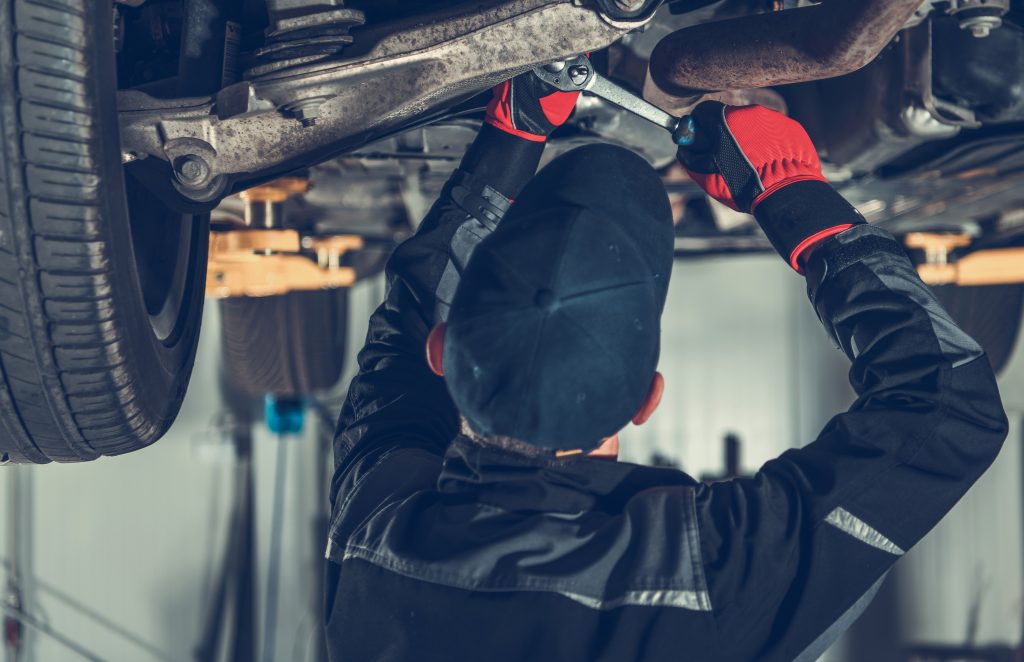
J.D. Power Study Finds Record High Number of Vehicle Issues
J.D. Power’s 2023 Initial Quality Study (IQS) raised concerns upon its recent release as J.D. Power reports a record high number of quality issues per vehicle studied.
The IQS measures vehicle quality by collecting information about the rate of vehicle problems in various car brands. Rates are measured in problems per one hundred cars (PP100).
Some Automakers Improved Quality Scores
The 2023 study reported an average of 192 PP100 or 192 vehicle problems per 100 vehicles studied. This number beats the previous high of 172 PP100 set in 2021, according to J.D. Power.
While 192 problems per 100 vehicles was the average, some automakers fared better while others fared worse. Dodge came in with the fewest problems per vehicle in the 2023 study, scoring 140 PP100. Ram and Alfa Romeo also scored lower than 150 PP100. Buick scored fourth overall and third among non-luxury vehicle brands.
Between 2022 and 2023, the three brands with the most improved PP100 scores were Maserati, Alfa Romeo, and Ram. Among parent company automakers, General Motors had the best scores across all its brands; Hyundai and Toyota also scored well across all their brands. Toyota’s Tahara Lexus Japan plant also received J.D. Power’s Platinum Plant Quality Award based on the automaker’s low rates of defects and malfunctions coming from this plant.
Despite Improvements, Quality Issues Continue to Rise Overall
At the other end of the scale, Tesla remains one of the automakers with the highest number of problems per vehicle. Tesla’s 2023 score was 257 PP100. J.D. Power notes, however, that Tesla’s score is merely an estimate, as the automaker did not provide access to data it is required to disclose under state law.
In past years, Tesla has had the highest rate of issues per vehicle. For 2023, Tesla came in second-highest after Polestar, which received a score of 313 PP100, according to J.D. Power. Chrysler and Volvo tied for the third-highest vehicle problems identified, scoring 250 PP100 apiece.
Currently, the auto industry “is facing a wide range of quality problems, a phenomenon not seen in the 37-year history of the IQS,” according to J.D. Power.
Commonly-identified issues included:
- Malfunctioning door handles, especially in inclement weather or due to power failures. In 70 percent of door handle issues, failures were directly linked to power failures. Some vehicles risked trapping occupants when door handles failed, which could lead to serious injuries.
- Safety system issues. While 80 percent of model year 2023 vehicle owners report having all four primary driver assistance features in their vehicles, fewer report that all four work correctly. Lane departure warnings and lane-keeping assistance reported the highest issues rate, with 7.2 PP100. Forward collision warning and automatic emergency braking ranked second at 5.0 PP100. Issues with blind spot warnings were also reported.
- Infotainment systems, including in–vehicle screens, audio systems, and smartphone charging systems. However, drivers report overall greater satisfaction with the smartphone apps that vehicle manufacturers provide.
Issues with Android Automotive Operating Systems (AAOS) also ranked highly on the list of complaints. Vehicles whose AAOS lacked Google Automotive Services (GAS) had much higher PP100 scores than those without AAOS.
J.D. Power even noted issues with “cupholders that don’t serve their purpose” in some vehicles.
Other Vehicle Issues Making the News
J.D. Power’s study did not explore “phantom braking,” in which the emergency brake engages automatically. However, the phantom braking phenomenon has been documented in vehicles like Teslas.
In 2022, the National Highway Traffic Safety Administration (NHTSA) opened a formal investigation after repeated complaints from Tesla owners about phantom braking. The issue appears to be connected to the vehicle’s advanced driver assistance system (ADAS), popularly known as Autopilot.
Under normal conditions, the ADAS system monitors the space around it for obstacles or other issues the vehicle may need to respond to. When a threat is detected, the automatic braking system should first warn the driver. If the driver does not apply the brakes, the system takes over to engage them.
However, a malfunction in Tesla’s ADAS system causes the system to apply the emergency brakes seemingly at random – as if the system is detecting “obstacles” that do not exist in the real world.
As of May 4, 2022, the NHTSA had received 758 reports of “unexpected brake activation” in several Tesla models. The agency estimates, however, that as many as 416,000 vehicles may be affected.
If you’re having trouble with a newly purchased or leased vehicle, don’t wait. Talk to an experienced California lemon law attorney today. The team at Wirtz Law APC can help.
SHARE
Lemon Law Categories
Over 97% Success Rate
In Lemon Law Claims
Business Law Categories
I bought a 2014 Jeep Cherokee from the 3 months I had my dream car I started having problems. When I could not resolve my problems with the dealer or Chrysler I started making phone calls to see what Lemon Law Firm could take to make my case. I made about a dozen or more…